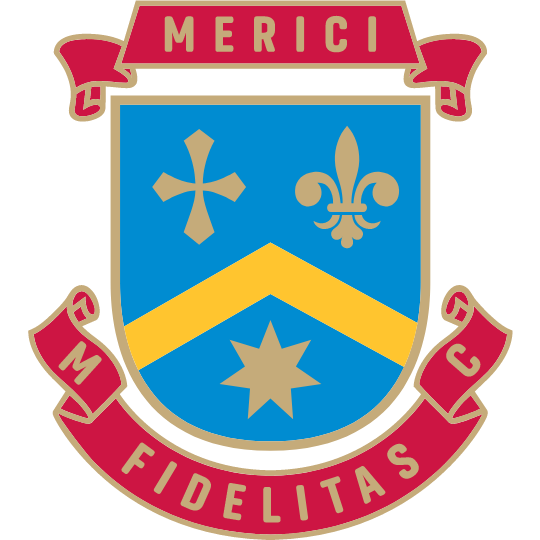
Strength, Equality, Determination
Our House story
Penola House is named after Penola, a town in South Australia, where in 1866 St Mary of the Cross MacKillop opened her first school.
St Mary MacKillop and Fr Julian Tenison Woods had seen the lack of educational opportunities for the children of poor, rural families in the area and set out to make a difference. They were soon joined by other young women and the Sisters of Saint Joseph of the Sacred Heart was established.
Aged just 24, Mary was to begin a network of schools at the margins of Australian society, wherever people struggled, in the remote outback or the sordid slums of the rapidly growing cities. She was a strong woman of deep compassion, whose love of God and all God’s people led her to reach out to the most deprived and despised people of her time.
Mary’s deep care led her, and the early sisters, to establish refuges and orphanages to care for women and children who had been abandoned by society, those living with domestic violence or abuse, those made homeless, the frail aged, and those recently released from prison.


For over 150 years the Sisters of Saint Joseph (the Josephites) have continued this work of offering all people regardless of cultural background or religion the opportunity to live life to the full.
By educating those who would otherwise be denied the privilege of education or by reaching out to the culturally displaced migrants, refugees and the first peoples of our land, Mary and her Sisters, offer an example of the Penola values of strength, equality and determination in action.
Mary MacKillop believed that God’s love is unbounded and calls each person to follow Christ’s example of being with and supporting the needy and neglected. Her life teaches us that sometimes these people are very close to us. While at times we avoid situations where the rejected and dejected are right in front of us, we can each offer at least a smile or a kind word. St Mary asks us to:
Let us show this love in our acts, bearing with one another, forgiving and forgetting. Mary MacKillop 1890
Mary’s life and legacy was honoured when she was named “Saint” by the Catholic Church on 17 October 2010. She is the first Australian to be recognised in this way. Her official title is Saint Mary of the Cross MacKillop.
In 1959, when Merici College was opened as Canberra Catholic Girls High School, there were two Josephite Sisters on staff, Sister M Damien Sullivan and Sister M Frederick Bradley. The black and white habit worn at that time by the Sisters inspired the colours adopted by Penola House.
True to St Mary’s vision and legacy the Sisters of Saint Joseph endeavour to live out the maxim, “Never see a need without doing something about it”.
Can the young women in Penola House look to St Mary MacKillop and seek to do the same?

CatholicCare learned about the growing need for emergency housing for women and having seen the need decided to do something about it!
CatholicCare was aware that in Canberra there are women sleeping in cars with their children, sleeping on floors in the homes of family and friends, sleeping behind dumpsters or in other ways, sleeping rough. These women had nowhere to go because every service was full.
Purchasing a former convent owned by the Sisters of Saint Joseph, they established MacKillop House for Homeless Women to provide supported housing for women, short term accommodation for up to 25 single women each night. Women are offered their own room, with shared facilities like bathrooms, dining room and living areas. The property also includes six villas previously used by Sisters working in the Canberra region, that now provide temporary accommodation for six mothers and their children.
When MacKillop House opened its doors on 2nd June 2020 to welcome homeless women, it became a place of safety and security for women and children of all ages and backgrounds. who had been made vulnerable by life’s circumstances.
For some domestic or family violence had made their home the least safe place she and her children could be. Others had been in relationships, married, had jobs, careers, homes and mortgages. Many had never needed a refuge or this type of service before. Many had never had to ask for help before. MacKillop House offers refuge for women and children who have nowhere to go; now, they do not have to continue living in a violent or unsafe situation.
Why does MacKillop House need our support?
Canberra and the ACT is a wealthy community and region and has one of the most generous postcodes in Australia, yet amidst these high levels of wealth there are hidden pockets of poverty and homelessness in Canberra. Sponsorship and fundraising can enable CatholicCare to respond to the needs of the women and children seeking the support offered by MacKillop House.
As well as providing three meals a day, fresh linen, utilities, internet access, laundry facilities, fridges and furnishings in bedrooms and common areas, MacKillop House assists the women to find permanent accommodation through the onsite staff who provide support and referrals to other services. It costs around $500 a week to support each woman living at MacKillop House.
CatholicCare would like to update the bedrooms and facilities, improve security systems, increase Clothes Dryers, and replace old, tired furniture. CatholicCare also seeks to provide Courses for the women and children on safety, nutrition, self-care, mental health and job-seeking.
Penola House, in responding to the needs of some of society’s most vulnerable women and children, can assist CatholicCare in seeing the need and doing something about it just as St Mary MacKillop did.

Prayer
PRAYER Leader: Loving God look favourably on the girls, staff and families of Penola House as we seek to follow the example of St Mary of the Cross MacKillop, whose selfless devotion to you and to all in need brought relief to so many.
Inspired by Mary’s work, her strength, determination and quest for equality, may we develop the resilience and passion to meet our own challenges and live lives full of hope and action.
READER: St Mary MacKillop dealt with injustice in all its many forms. When we are faced with injustices that diminish human dignity, in the spirit of St Mary of the Cross may we reach out in love and service. In the spirit of St Mary of the Cross we pray –
RESPONSE: Loving God, Let Our Light Shine
READER: St Mary MacKillop reached out to all people who suffered disability, religious persecution, poverty, hunger or homelessness. When we are confronted by people who need our support, let us never see a need without doing something about it. In the spirit of St Mary of the Cross we pray –
RESPONSE: Loving God, Let Our Light Shine

Loving God,
Look favourably on the girls, staff and families of Penola House as we seek to follow the example of St Mary of the Cross MacKillop,
whose selfless devotion to you and to all in need brought relief to so many.
Inspired by Mary’s work, her strength, determination and quest for equality,
may we develop the resilience and passion to meet our own challenges and live lives full of hope and action.

READER: Oppression is everywhere in our world, as it was at the time of St Mary MacKillop. Help us to respond with compassion and practical help, in the spirit of St Mary of the Cross –
RESPONSE: Loving God, Let Our Light Shine
READER: Gratitude of the heart was characteristic of St Mary MacKillop’s way of life. May we too show gratitude to God and others for the blessings we receive daily, and may we be generous in sharing these blessings with those we meet. In the spirit of St Mary of the Cross we pray –
RESPONSE: Loving God, Let Our Light Shine
Concluding Prayer
God of mercy and compassion, you called St Mary MacKillop to reach out in loving service to all those in need. She worked to give dignity to every person. We ask you to look over us as we aspire to live by her example. Let us allow the message of Christ, in all its richness, to find a home within us and may our light shine as brightly as that of St Mary of the Cross. We ask this prayer through Christ Our Lord.
Amen
Penola Crest
The Penola House crest features a Cross reminding us that Christ and the Eucharist were central to the life and faith of St Mary of the Cross MacKillop and remain so for all Sisters of Saint Joseph of the Sacred Heart and all God’s people.
The diamond pattern is taken from the monogram of the Sisters of Saint Joseph worn as part of their religious dress since the time of St Mary MacKillop.
The monogram symbolised the Blessed Virgin [‘A’ without the crossbar + ‘M’, for ‘Ave Maria’] The Sisters’ monogram also includes three letters ‘J’ in honour of Jesus, Joseph and John the Baptist, thus, typifying the Holy Family.
The lines of symmetry at the top of the crest represent St Mary’s desire that dignity, equality and inclusion be upheld by all who follow Christ in the Josephite way
Our bookmark






